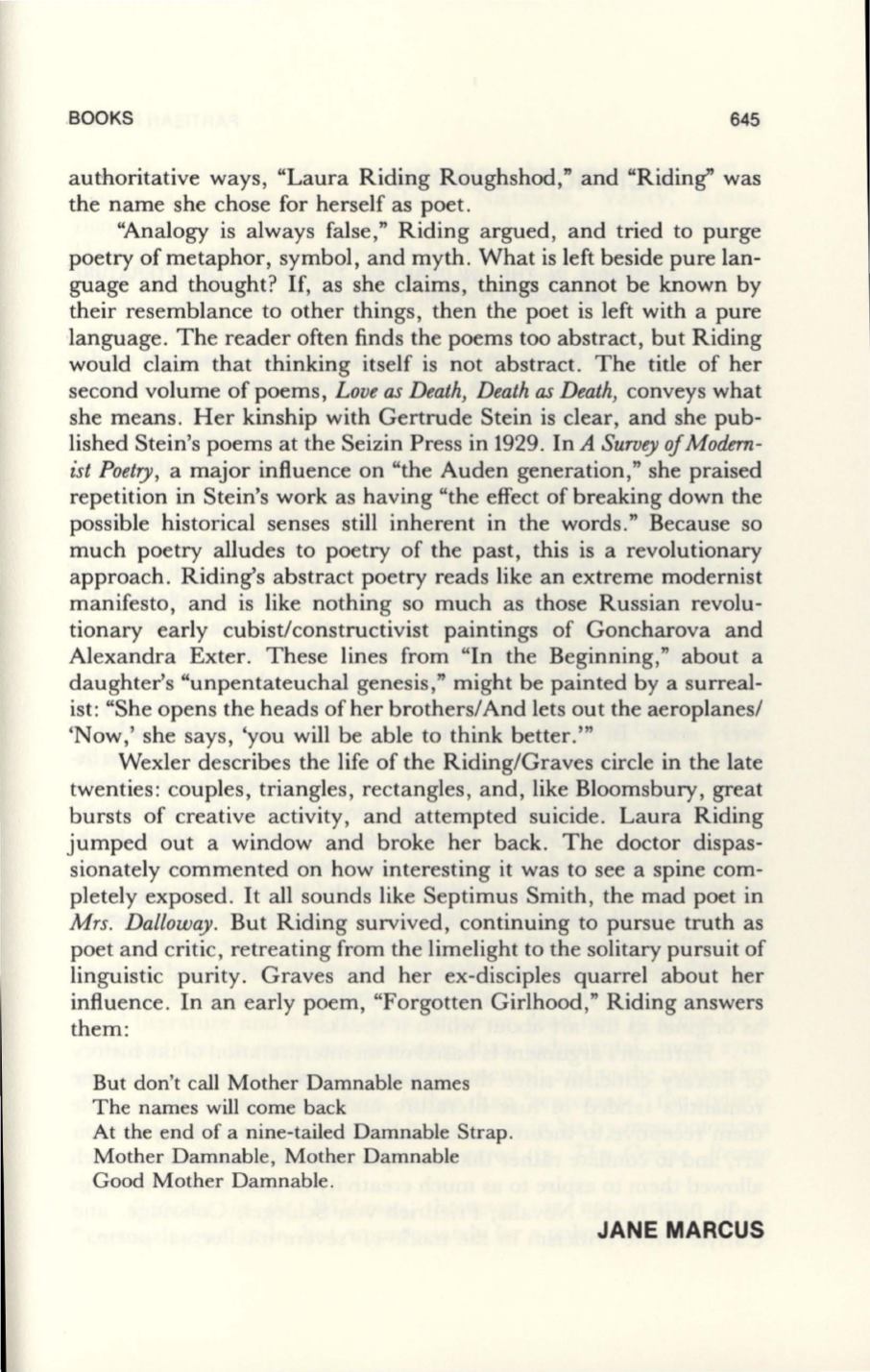
BOOKS
645
authoritative ways, "Laura Riding Roughshod," and "Riding" was
the name she chose for herself as poet.
"Analogy is always false," Riding argued, and tried to purge
poetry of metaphor, symbol, and myth. What is left beside pure lan–
guage and thought?
If,
as she claims, things cannot be known by
their resemblance to other things, then the poet is left with a pure
language. The reader often finds the poems too abstract, but Riding
would claim that thinking itself is not abstract. The title of her
second volume of poems,
Love as Death, Death as Death,
conveys what
she means. Her kinship with Gertrude Stein is clear, and she pub–
lished Stein's poems at the Seizin Press in 1929. In
A Survey
of
Modern–
ist Poetry,
a major influence on "the Auden generation," she praised
repetition in Stein's work as having "the effect of breaking down the
possible historical senses still inherent in the words." Because so
much poetry alludes to poetry of the past, this is a revolutionary
approach. Riding's abstract poetry reads like an extreme modernist
manifesto, and is like nothing so much as those Russian revolu–
tionary early cubist/constructivist paintings of Goncharova and
Alexandra Exter. These lines from "In the Beginning," about a
daughter's "unpentateuchal genesis," might be painted by a surreal–
ist: "She opens the heads of her brothers/And lets out the aeroplanes/
'Now,' she says, 'you will be able to think better.'"
Wexler describes the life of the Riding/Graves circle in the late
twenties: couples, triangles, rectangles, and, like Bloomsbury, great
bursts of creative activity, and attempted suicide. Laura Riding
jumped out a window and broke her back. The doctor dispas–
sionately commented on how interesting it was to see a spine com–
pletely exposed .
It
all sounds like Septimus Smith, the mad poet in
Mrs. Dalloway.
But Riding survived, continuing to pursue truth as
poet and critic , retreating from the limelight to the solitary pursuit of
linguistic purity. Graves and her ex-disciples quarrel about her
influence. In an early poem, "Forgotten Girlhood," Riding answers
them:
But don't call Mother Damnable names
The names
will
come back
At the end of a nine-tailed Damnable Strap.
Mother Damnable, Mother Damnable
Good Mother Damnable.
JANE MARCUS


